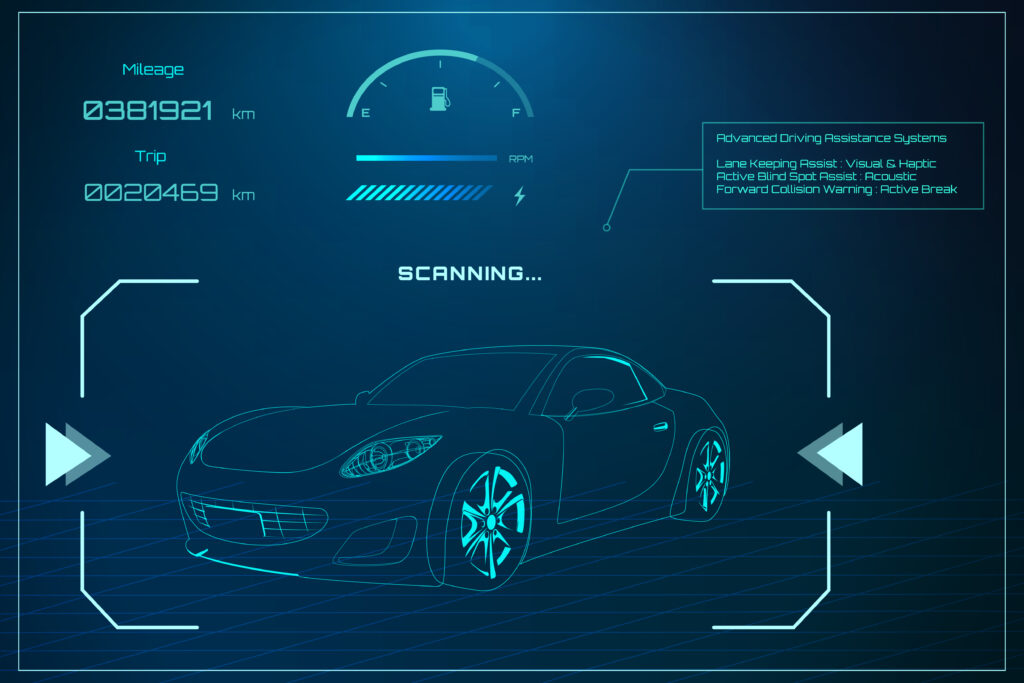Introduction
Due to the recent surge in interest in augmented reality (AR) and the metaverse, automakers are attempting to incorporate AR features into their vehicles. For instance, an increasing number of in-vehicle infotainment systems now include augmented reality (AR) as a component of their GPS navigation systems, showing holographic arrows on a live visual stream from the front of the car. By incorporating the metaverse in the automobile industry, some automakers are attempting to advance this AR acceptance. Avatars projected into passenger seats or interactive holographic windscreens might be used to introduce it to the in-car environment. This opens the door to distractions and ever more widespread advertising, notwithstanding its benefits for amusement and education.
Mercedes Benz’s Virtual Showroom
For its first non-fungible token (NFT) Mercedes-Benz linked up By producing an original, one-of-a-kind digital artwork in the shape of an NFT, five of the world’s best painters pay homage to the G-Class.
BMW using AR for driving experience
BMW’s collaborations with BMW-owned Fender and Mini demonstrate the company’s increased commitment to metaverse monetization. The partnerships, which were revealed today at Cannes, showcase experiences created using Horizons, a metaverse platform exclusive to Meta.
Meta Quest 2 headset users can access the experiences in the UK, US, and Canada. To introduce branded content to a new audience in the metaverse, they want to recreate the driving experience of a Mini and offer a “first-of-its-kind co-play audio experience to generate fresh music riffs.” In collaboration with Creative Shop, the worlds have been developed. These kinds of branded experiences are thought to offer iconic brands a chance to advertise in the metaverse.
Hyundai’s Launching its car In Metaverse
Hyundai has rolled out the Roblox app via Play Store to gain access to a seamless virtual launch experience of the newly launched N series of their cars. Metaverse connotes a virtual reality space in which users can interact in a computer-generated environment and other users.
Tarun Garg, The Director of Hyundai Motor India said, ” We are confident that this integration of the virtual and physical universe will establish a strong and long-lasting relationship with today’s tech-empowered generation.”

Investment Into Metaverse
The potential for new social and educational opportunities is intriguing. Individuals at home could travel with friends anywhere in the world by fusing the actual and virtual worlds. The avatars of your loved ones can then be used to break up those typically tedious and long rides. Through the use of augmented reality overlays, drivers might see the environment around them from the perspective of a local or even from an entirely different era.
Already, big money is making its way into this area. In just a few months, investments in the non-fungible tokens-based virtual asset economy have topped US$400 million. According to a recent report by BCG, the worldwide Metaverse market is projected to be worth between $250 billion and $400 billion dollars by 2025.
The Future
Are physical showroom days coming to an end? The process of creating, manufacturing, and purchasing an automobile will be drastically different in the Metaverse, though not necessarily.
The lines separating the virtual and real worlds become more hazy thanks to this convergence. A world away from the online experiences to which we are currently accustomed, this would be a place where individuals and organizations could interact and fully immerse themselves in digital content in three dimensions.





